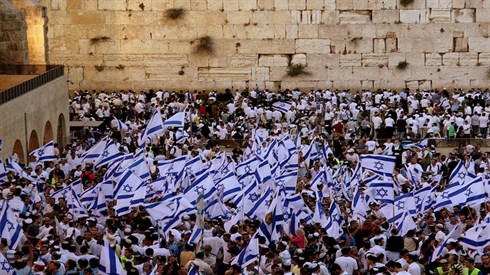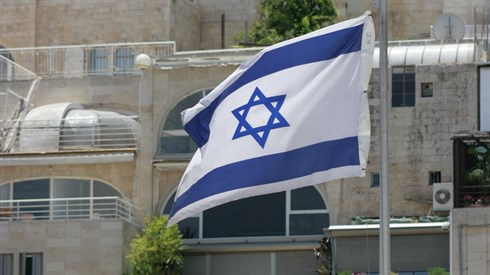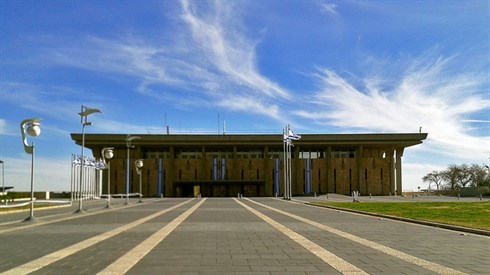- Torah and Jewish Thought
- Questions on Hashem
365
Question
El (אל) and Eloha (אלוה) are both singular forms (nouns), but its אל that’s used to form the plural Elim (אלים), and אלוה that’s used to form the plural Elohim (אלוהים). Both singular forms seem to be closely related to each other (comparing certain verses even synonym). But what exactly is the connection and the difference (in grammar and, more important, in meaning) between the two? And what is the best way to define both words El (אל) and Eloah (אלוה)?
Answer
I asked your question to Rav Yoel Bin-Nun who specializes in such fields, and he explained as follows: E-l literally means power and could, and was, also (!) used by the idolaters as a nickname for an individual created power (not the Creator). The plural of el is elim (powers or gods), and not “E-lohim”. On the other hand, the Torah begins “Breishit bara E-lohim…”, which sounds like plural (with the “im” ending), because it refers to the One and Only monotheistic G-d, who created, harmonizes and davka (!) unites all of the powers which superficially appear as different and contrasting. We in Israel, declare His Oneness using this name in the Shma: “’E-lohenu’ is One”, and not “Elenu”. The singular of E-lohim is: E-loha, and this could be used to stress the Oneness even more then the seemingly plural: E-lohim, without the limitations and “many-ness” (of each individual power) which could be inferred by: E-l.
Accordingly, the Rambam usually prefers the more singular sounding, E-loha, as opposed to E-lohim, perhaps because the latter (which sounds plural) is used by the Christians to connote their mistaken trinity, and perhaps because of the similarity to his native language, Arabic, where the monotheistic Al-lah, is more exactly translated to the similar: E-loha. The Tanach, on the other hand, believes in the total Unity of E-lohim with such monotheistic clarity, that it usually uses E-lohim more than E-loha, to davka stress the Unity without suspecting any kind of confusion or plurality.
Alternatively, the Sforno (intro. p. 29) explains that E-loha stresses “eternity”, and E-l stresses decisiveness, capability, and active will.
3 Repliesin 2 Discussions
S Shena Etti |4 Heshvan 5784 Torah linguistics
This explains the implications of El vs Eloha, but I still don't understand how the addition of "oha" gives us "eternity." Can you kindly elucidate further?
G Gabriel Blum |3 Shevat 5785 El and Eloah
I would like to know why judges/powerfull ones are called elohim and not elim for example

Punishing a child for the sins of his father
Rabbi Yoel Lieberman | Tishrei 8, 5780

What Power Have We Over Hashem?
Rabbi Elchanan Lewis | 13 Elul 5764
proper way to address God?
Rabbi Daniel Kirsch | Kislev 3, 5782

Forgiveness
Rabbi Jonathan Blass | 30 Nisan 5763

On which day may one start wishing "Shabbat Shalom"?
Rabbi David Sperling | Iyyar 9, 5780

Why Celebrate Yom Haatzmaut
Rabbi Ari Shvat | Iyyar 5, 5771

Trimming the beard
Rabbi David Sperling | Iyyar 16, 5782

Trimming the beard
Rabbi David Sperling | Iyyar 16, 5782

Which Prophets did Israel kill?
Rabbi Ari Shvat | Adar 25, 5785
Separate beds while niddah
Rabbi Gideon Weitzman | Nisan 13, 5785

Havara- Sefaradic or Ashkenazic Pronunciation
Rabbi Ari Shvat | Nisan 17, 5785




